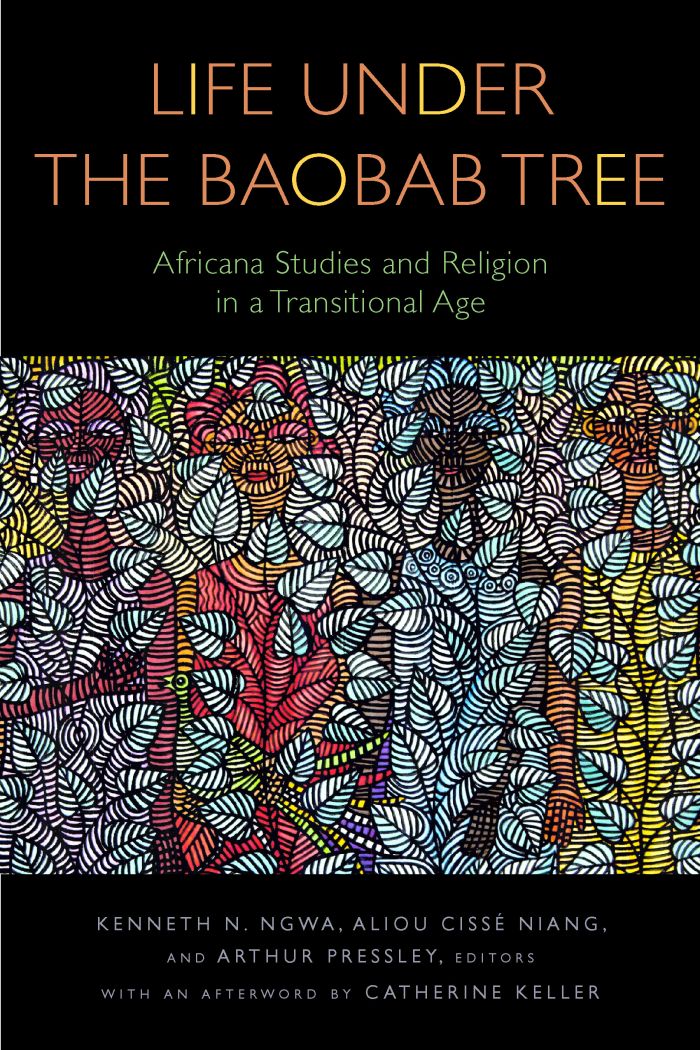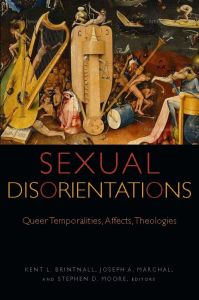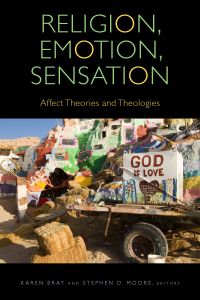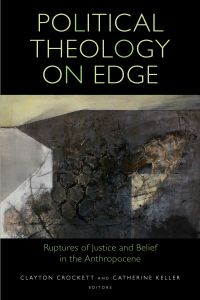Life Under the Baobab Tree
Africana Studies and Religion in a Transitional Age

This book can be opened with

Life Under the Baobab Tree: Africana Studies and Religion in a Transitional Age is a compendium of innovating essays meticulously written by early and later diaspora people of African descent. Their speech arises from the depth of their experiences under the Baobab tree and offers to the world voices of resilience, newness/resurrection, hope, and life. Resolutely journeying on the trails of their ancestors, they speak about setbacks and forward-looking movements of liberation, social transformation, and community formation. The volume is a carefully woven conversation of intellectual substance and structure across time, space, and spirituality that is quintessentially “Africana” in its centering of methodological, theoretical, epistemological, and hermeneutical complexity that assumes nonlinear and dialogical approaches to developing liberating epistemologies in the face of imperialism, colonialism, racism, and religious intolerance.
A critical part of this conversation is a reconceptualization and reconfiguration of the concept of religion in its colonial and imperial forms. Life Under the Baobab Tree examines how Africana peoples understand their corporate experiences of the divine not as “religion” apart from its intimate connections to social realities of communal health, economics, culture, politics, environment, violence, war, and dynamic community belonging. To that end Afro-Pessimistic formulations of life placed in dialogic relation Afro-Optimism. Both realities constitute life under the Baobab tree and represent the sturdiness and variation that anchors the deep ruptures that have affected Africana life and the creative responses. The metaphor and substance of the tree resists reductionist, essentialist, and assured conclusions about the nature of diasporic lived experiences, both within the continent of Africa and in the African Diaspora.
Life Under the Baobab Tree goes a very long way in healing the wounds of people of African descent who in diverse ways collectively have been bruised and battered by homogenization, amputation, and erasure. The rich, complex, and variegated Africana experience is captured beautifully in this transdisciplinary anthology in which the powerful African image of the Baobab tree is the working metaphor that compellingly images the work. This text is a must-read for anyone who wishes to experience the fullness of the global African experience.—Emmanuel Y. Lartey, Charles Howard Candler Professor of Pastoral Theology & Spiritual Care, Candler School of Theology & Graduate Division of Religion, Emory University
Breathtaking in its creative framing of Africanness and Blackness as vital, resilient remembrances of—and critical responses to—the abundance of life! This volume features a dazzling array of theoretical frameworks, voices, identities, practices, interpretive strategies, and expressions that augment the distinctive positioning of religious thinking and valuing within Africana Studies. While offering unflinching analyses of antiblackness and its defining disposition in the past and present, Life Under the Baobab Tree also intimates at possibilities emerging from the generative dimensions of life itself. The lucid accounts and claims of diasporic reality represented in these pages are both instructive and thought-provoking.—Carol Wayne White, author of Black Lives and Sacred Humanity Toward an African American Religious Naturalism
Life Under the Baobab Tree makes an important and scholarly contribution to the growing field of Africana studies. . . [A] well-organized and edited collection that will spark interest for those seeking greater understanding of a traditional African religious worldview.—African Studies Quarterly
. . .[T]his anthology is evocative, and I highly recommend it for readers in the undergraduate and graduate classroom setting, as well as spiritual practitioners restoring pride within communities.—Shanbrae McFarland, Religious Studies Review
Catherine Keller is a professor of constructive theology at the Theological School of Drew University. In her teaching, lecturing, and writing, she develops the relational potential of a theology of becoming. Her books reconfigure ancient symbols of divinity for the sake of a planetary conviviality—a life together across vast webs of difference. Thriving in the interplay of ecological and gender politics, of process cosmology, poststructuralist philosophy and religious pluralism, her work is both deconstructive and constructive in strategy. She is author of several books, including Facing Apocalypse: Climate, Democracy and Other Last Chances (2021); Cloud of the Impossible: Negative Theology and Planetary Entanglements (2014); Face of the Deep: A Theology of Becoming (2003), and many other essays and articles.
Kenneth N. Ngwa (Edited By)
Kenneth Ngwa is a professor of Hebrew Bible at Drew Theological School. Ngwa’s current research interests are in the fields of African/a biblical hermeneutics. He is also the founder and director of the Religion and Global Health Forum at Drew Theological School, an interdisciplinary forum that examines the relation between religion and health, healthy disparities, and collaborative work for health equity. Ngwa is the author of The Hermeneutics of the ‘Happy’ Ending in Job 42:7–17 (2005); co-editor of Navigating African Biblical Hermeneutics: Trends and Themes from Our Pots and Calabashes (2018); and Let My People Live: An Africana Reading of Exodus (2022).
Aliou Cissé Niang (Edited By)
Aliou Cissé Niang is an associate professor of biblical interpretation—New Testament—at Union Theological Seminary in New York. Niang is the author of Faith and Freedom in Galatia and Senegal (2009); co-author of Text, Image, and Christians in the Graeco-Roman World (2012); A Poetics of Postcolonial Biblical Criticism: God, Human-Nature Relationship, and Negritude (Cascade Books, 2019); “Catholic Epistles,” in Anselm Companion to the New Testament (Anselm Academic, 2014); “Space and Human Agency in the Making of the Story of Gershom through a Senegalese Christian Lens,” Forum-Journal of Biblical Literature (2015); “Islandedness, Translation, and Creolization,” in Islands, Islanders, and Bible: RumInations (2015); “Christianity in Senegal,” and “Diola Religion,” both in Encyclopedia of Christianity in the Global South, ed. Mark A. Lamport and Philip Jenkins (2018).
Arthur Pressley (Edited By)
Arthur Pressley is an associate professor of psychology and religion at Drew University, where he has also served as academic dean. Pressley is also a clinical psychologist, a past president of the New Jersey Association of Black Psychologists and has worked on numerous international issues, most notably the Childhood Chernobyl Childhood Illness Project. He currently teaches a course titled “Fanon and Psychoanalysis of Black Novels.” Some of his published articles include “Using Novels of Resistance to Teach Intercultural Analysis and Empathy”; “Teaching Black: God Talk and Black Thinkers,” in Being Black, Teaching Black: Politics and Pedagogy in Religious Studies, ed. Nancy Lynne Westfield (2007), and “The Story of Nimrod: A Struggle with Otherness and the Search for Identity,” in African American Religious Life and the Story of Nimrod, ed. Anthony Pinn and Allen Dwight Callahan (2008).
Introduction: Life Under the Baobab Tree:
Africana Studies and Religion in a Transitional Age
Kenneth N. Ngwa, Aliou Cissé Niang, and Arthur Pressley | 1
PART 1: UN/FOLDING IDENTITIES
Archangel Gabriel Speaks to Mary
Pamela Mordecai | 23
1. Nella Larsen’s Quicksand: Mourning through Biracial Identities
Arthur Pressley | 29
2. Body as Praxis: Disarticulating the Human from Ownership and Property
An Yountae | 57
3. What It’s Like to Be a Blackened Body, and Why It’s Like That: A Preliminary Exploration
Desmond Coleman | 75
4. The Rhizome and/as the Tree of Life: The Relational Poetics of Wisdom and Decolonizing Biblical Studies
A. Paige Rawson | 92
5. Senghorian Négritude and Postcolonial Biblical Criticism
Aliou Cissé Niang | 126
PART 2: AFRICANA ACTIVISM
Litany on the Line
Pamela Mordecai | 171
6. God Killed! God Interrupted, Long Live the People!: Political Theory in Religious Act
Nimi Wariboko | 173
7. “Doing the Will of God” as Loving God Whose Way Is Peace
Aliou Cissé Niang | 195
8. Mysticism and Mothering in Black Women’s Social Justice Activism: Brazil/USA
Rachel Elizabeth Harding | 223
9. A Theopoetics of Exodus and the Africana Spirit in Music
Sharon Kimberly Williams | 235
10. Must We Burn Isaac?: A Four-Part Hermeneutical Fantasy for Africana Epistemology
Minenhle Nomalungelo Khumalo | 250
PART 3: AFRICANA HISTORIOGRAPHIES AND MEMORIES
Temitope Temitope
Pamela Mordecai | 273
11. From White Man’s Magic to Black Folks’ Wisdom
Althea Spencer Miller | 275
12. Solidarity by Sharing Power: An Inculturated Organic Storytelling of Jonah and Mami Wata
’Shola D. Adegbite | 307
13. Envisioning Africana Religions:
Seeking a Distinctive Voice for the Study of Religions in Africa and the African Diaspora
Salim Faraji | 328
14. Interpreting from the Back/Black-Side: Exodus through the Shawl of Memory
Kenneth N. Ngwa | 355
15. Conjuring Lost Books:
(Re-)membering Fragmented Litanies at the Intersection of Africana and Biblical Studies
(The Rev. Canon) Hugh R. Page Jr. | 400
Afterword
Catherine Keller | 409
List of Contributors | 413
Index of Modern Authors | 419
Index of Ancient Documents | 427




